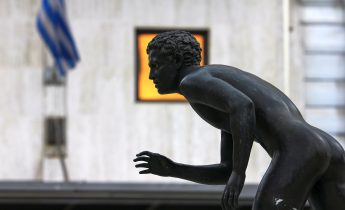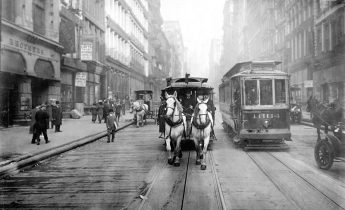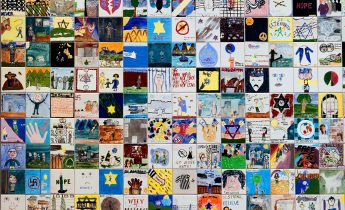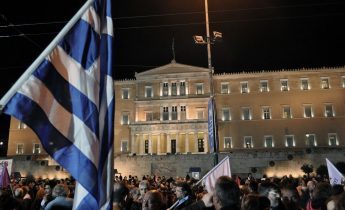Personal Details: Apostolidou, Eleni
Core Author | Stammautorin
Η Ελένη Αποστολίδου είναι επίκουρος καθηγήτρια Διδακτικής της Ιστορίας στο Παιδαγωγικό Τμήμα Δημοτικής Εκπαίδευσης του Πανεπιστημίου Ιωαννίνων και συνεργαζόμενο μέλος του Ελληνικού Ανοικτού Πανεπιστημίου στο μεταπτυχιακό πρόγραμμα Δημόσιας Ιστορίας. Πραγματοποίησε σπουδές κλασσικής φιλολογίας και ιστορίας στην Αθήνα και πήρε μάστερ διεθνών σπουδών από το Παν/ιο του Leeds (Αγγλία). Εκπόνησε τη διατριβή της με τίτλο ‘Ιστορική Συνείδηση των Δεκαπεντάχρονων Μαθητών στην Ελλάδα’ στο Institute of Education, Πανεπιστήμιο του Λονδίνου τα έτη 2002-2006. Τα ερευνητικά της ενδιαφέροντα αφορούν τη διδασκαλία της ιστορίας στην Α’θμια και Β’θμια εκπαίδευση, την ιστορική συνείδηση, ιστορική κουλτούρα, θεωρία της ιστορίας, δημόσια ιστορία, τη διδασκαλία της ιστορίας σε περιβάλλον μουσείων. Έχει συμμετάσχει με άρθρα της σε τόμους των International Journal of Historical Learning, Teaching and Research, International Society for History Didactics Yearbook, International Review of History Education.
Eleni Apostolidou, PhD, is assistant professor of history didactics at the Primary Education Department of the University at Ioannina (Greece) and an adjunct member of the Hellenic Open University in the MA program of Public History. Dr. Apostolidou studied classics and history in Athens, received a MA degree in international studies from the University of Leeds in England and completed her doctoral research, ‘The Historical Consciousness of 15-year-old students in Greece’, at the Institute of Education of London, between the years 2002-2006. Her main interests are ‘Teaching History in the Primary and Secondary School’, ‘Historical Consciousness’, ‘Historical Culture’, ‘History of Historiography’, ‘Theory of History’, ‘Public History’, ‘Teaching History in Museums’. She has contributed to the International Journal of History Learning, Teaching and Research, to the Yearbook of the International Society of History Didactics, to the Review of History Education and is a core author of Public History Weekly.
Eleni Apostolidou, Dr. phil., ist Dozentin für Geschichtsdidaktik an der Universität von Ioannina (Griechenland), Institut für Elementarschulbildung und Mitglied der Hellenic Open University im Master-Programm für Public History . Sie hat Klassische Philologie und Geschichte in Athen studiert, erwarb einen Masterabschluss an der Universität von Leeds (UK) und absolvierte erfolgreich ein Doktoratsstudium am Institut of Education der Universität London (02-06). Ihre Dissertation widmete sich dem "Geschichtsbewusstsein 15-jähriger SchülerInnen in Griechenland". Ihre hauptsächlichen Forschungsinteressen liegen auf den Gebieten des Geschichtsunterrichts an der Grundschule und an weiterführenden Schulen, dem Geschichtsbewusstsein, der Geschichtskultur, der Geschichte der Geschichtsschreibung, der Theorie der Geschichte, der Public History und der Museumspädagogik. Sie hat Beiträge veröffentlicht im International Journal of History Learning, in Teaching and Research, im Yearbook of the International Society of History Didactics, in Review of History Education und ist Stamm-Autorin bei Public History Weekly.
-
Είδη Δημόσιας Ιστορίας, Ψηφιακά Μέσα και το Διαδίκτυο
Types of Public History, Digital Media and the Web | Typen von Public History, digitale Medien und das Web
Είδη Δημόσιας Ιστορίας, Ψηφιακά Μέσα και το Διαδίκτυο
Lara Kelland raises one of the most controversial questions of democratization of Public History: Is Digital Public History history at all?
-
Misinformation, Trivialization, and Plagiarism
Παραπληροφόρηση, Απλούστευση και Λογοκλοπή στη Δημόσια Ιστορία | Fehlinformationen, Trivialisierung und Plagiate
Misinformation, Trivialization, and Plagiarism
This intervention addresses the advantages and disadvantages of practicing public history, especially on-line. The advantages of the digital culture that prevails in public history can be detrimental.
-
Civic Public Space as Conflictual Space
Ο Αστικός Δημόσιος Χώρος ως Συγκρουσιακός Χώρος | Öffentlichkeit als konfliktträchtiger Raum
Civic Public Space as Conflictual Space
Lévesque agrees with Nora’s explanation for the repeated attacks against monumental figures all over the world: the “general politization...
-
Parallel Lives? History and its Didactics
Ιστοριογραφία και Διδακτική της Ιστορίας: Παράλληλοι Βίοι; | Parallele Existenzen? Geschichte und ihre Didaktik
Parallel Lives? History and its Didactics
History didactics can be distinguished into three different periods in the 20th century. Historical Consciousness as one of its elements has long before been focused on the consumer.
-
The Public Lure of History Education
Η Δημόσια Γοητεία της Ιστορικής Εκπαίδευσης | Der öffentliche Anreiz der Geschichtsbildung
The Public Lure of History Education
There is a debate about the relationship between history didactics, public history, and historical culture. Historical culture is a learning environment for history didactics. It shows many different ways in which the past is recreated in the present.
-
Moral and Cognitive Dilemmas in History Education
Ηθικά και Γνωστικά Διλήμματα στην Ιστορική Εκπαίδευση | Moralische und kognitive Dilemmata der Historischen Bildung
Moral and Cognitive Dilemmas in History Education
Public historians and history educators both aim at “reaching the world outside the academy”. They face some common dilemmas, part. in Holocaust education. The...
-
The ‘Burden of History’ and Controversial Issues
Die ‘Last der Geschichte’ und kontroverse Themen | Το ‘Βάρος της Ιστορίας’ και τα Συγκρουσιακά Ζητήματα στην Εκπαίδευση
The ‘Burden of History’ and Controversial IssuesIssue: Educational Content. In Greece we tend to have rather “passionate debates over the national past” than about history education as a whole.
-
The Lure of Public History: Intimate and Public
Die Verlockung der Public History: Intim und Öffentlich | Το Δέλεαρ της Δημόσιας Ιστορίας: Προσωπική και Δημόσια
The Lure of Public History: Intimate and Public
Why do public historians speak of the “second and third life of history”? Why is it that the public past and the private one cannot be apart any longer? Why have people become...